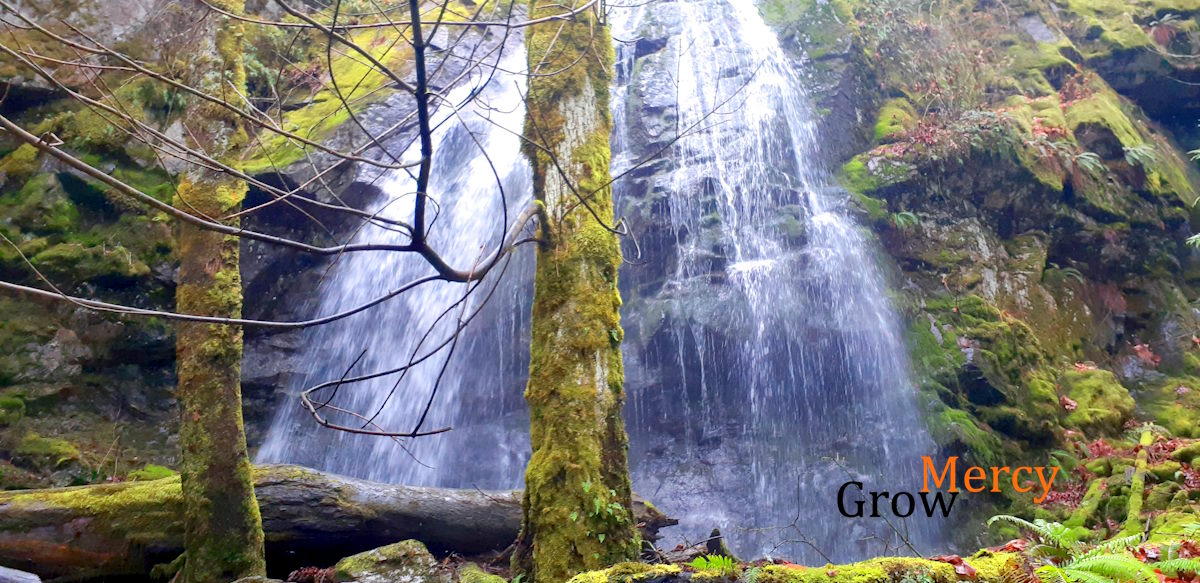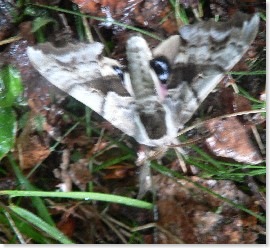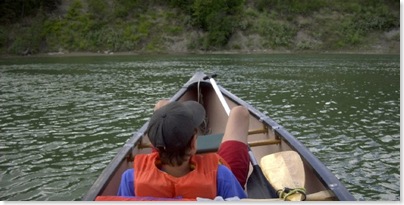 George Carlin died yesterday. Sad news. My fondness for him began the first time I saw him on Ed Sullivan. I don’t remember his material for that show but I do remember the time he did the Hippy-Dippy Weatherman. “Forecast for this evening…increasing darkness tonight with light patches toward morning…” it was far and away my favourite Carlin character.
George Carlin died yesterday. Sad news. My fondness for him began the first time I saw him on Ed Sullivan. I don’t remember his material for that show but I do remember the time he did the Hippy-Dippy Weatherman. “Forecast for this evening…increasing darkness tonight with light patches toward morning…” it was far and away my favourite Carlin character.
Still, not wanting to speak ill of the dead–although of course Carlin had no problem speaking ill-of, living or dead–but when George Carlin traded in comedy for caustic commentary, even though few could cut better, I dropped out.
His biting satire of all things may have gained him a new audience, but for me, he became just too much of a projectile. He showed no mercy. Well, admittedly, that’s his right, and as he saw it, his job as a comedian. As David Hinkley’s obit in the NY Daily relayed, “he always said his often-cynical satire simply reflected his real-life disdain for mankind’s greed, stupidity and inconsideration.”
But the comedy became wincing. For example, to wring a laugh out of the beheading of an Oklahoma corporate executive was satire that defeated itself. It was a sideways attack on greed perhaps, but Carlin was wilfully blind, or just blind, to his own special kind of inconsideration. 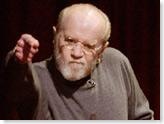
With age, he became unfunny. Caustic satire, yes, fair game in context, but a steady stream without so much as an inward glance not only loses appeal, it gets boring. Carlin seemed to just have one track. When things got boring he just upped the outrageous-ante. I guess I still appreciate a self-deprecating comic. One who draws me in by pointing out her own mania and then with a few great lines implicates the lot of us. I think Carlin used to do this. But over the last number of years he just sounded angry and miserable.
The tributes are coming in, he’s being lauded for telling us the “harsh truth,” and I guess he did that. Although harsh truth about humanity is hardly revelatory. I suppose it’s my problem, but I never got the sense that he interrogated himself anywhere as close as he did his targets, and admittedly, not all of his targets were straw-men…he wasn’t a fool. It’s just that I’m left wondering how his comedy and voice may have evolved had he developed, along with his annihilating ability at piercing pretensions, an accompanying self-questioning stance.
Seems to me that’s the kind of broad quizzical standpoint Al Sleet, the Hippy-Dippy Weatherman would have taken. He had the insight to see an encompassing view. As he said in his final and definitive broadcast, “The weather will continue to change on and off for a long, long time.”
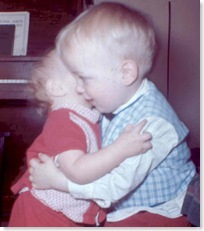 At last he came through the door. Blues were playing, the kind that bring wry smiles to people, the kind that make us all walk slower and sexier and even swagger just a bit, the kind that everyone has an understanding about, the kind that if we could we would glide to…sail to…at ceiling level.
At last he came through the door. Blues were playing, the kind that bring wry smiles to people, the kind that make us all walk slower and sexier and even swagger just a bit, the kind that everyone has an understanding about, the kind that if we could we would glide to…sail to…at ceiling level.